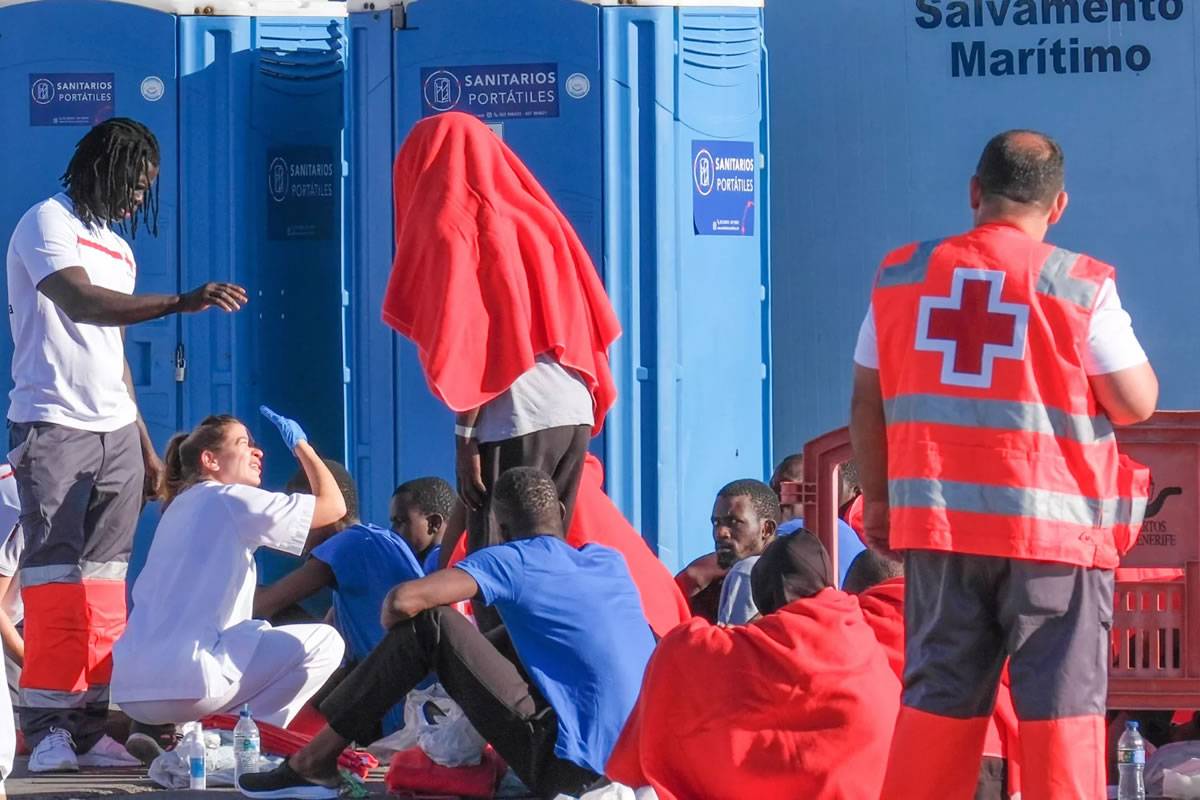630 migrants have died trying to get to the Canary Islands so far this year
- 26-11-2023
- National
- Canarian Weekly
- Photo Credit: Efe
The toll of migrants losing their lives or going missing while attempting the perilous sea journey from Africa to the Canary Islands has surged to 634, surpassing the 2022 count of 559, as per daily updates from the International Organization for Migration (IOM).
Even with over a month left of 2023, this marks the third-highest annual casualty figure on this route since the IOM began monitoring incidents globally through its Missing Migrants Project in 2014. It trails only behind the grim statistics of 2021 (1,126 deaths and disappearances) and 2020 (877).
Furthermore, this route stands as the third deadliest among all non-Mediterranean routes in Africa, only outranked by those crossing the Sahara Desert. Since 2014, at least 3,722 lives have been lost in voyages to the Canary Islands, a figure only surpassed by the 6,084 fatalities in attempts to cross the Sahara Desert.
Across non-Mediterranean African routes, nearly 14,000 people have perished or gone missing in the past decade, making them the second most dangerous globally, trailing only behind the Mediterranean routes with over 28,000 fatalities in the same period.
The route from Morocco and West Africa to the Canary Islands, utilised by migrants for the past 30 years, is deemed "extremely hazardous due in large part to the vast distances and the lack of search and rescue operations," according to the IOM.
Although the Moroccan coasts closest to the Spanish archipelago are merely 100 kilometres away, many journeys commence in far more distant regions, such as the vicinity of the city of Dakhla in Western Sahara (approximately 450 kilometres away) or the Mauritanian port of Nouadhibou, situated 775 kilometres away.
These journeys, spanning days or even weeks, often occur on boats ill-equipped with sufficient food and water, leading to hundreds of migrant deaths, often due to hunger or dehydration, reports the IOM. The organisation asserts that the figures recorded by its program are conservative and may, in reality, be much higher.
Other articles that may interest you...
Trending
Most Read Articles
Featured Videos
TributoFest: Michael Buble promo 14.02.2026
- 30-01-2026
TEAs 2025 Highlights
- 17-11-2025



























































